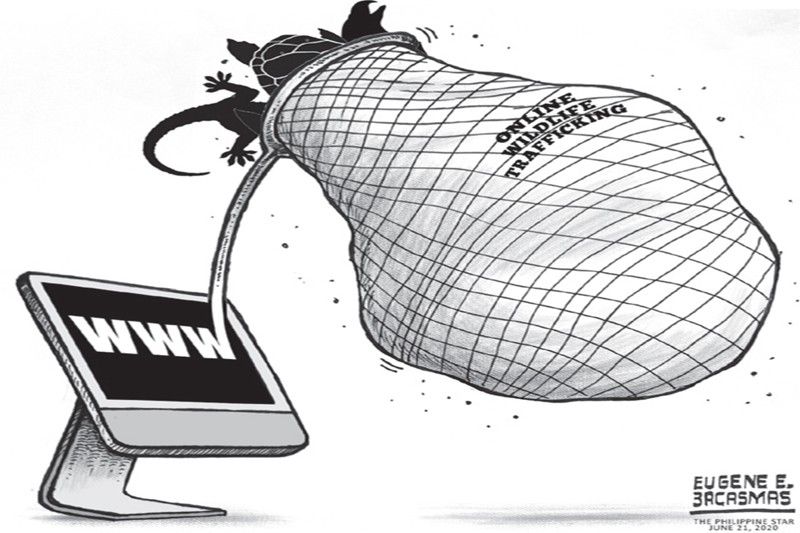EDITORIAL - Online wildlife trafficking

Cyber space is a boon for all types of commerce including, unfortunately, the trafficking of wildlife. And the Philippines, with its rich biodiversity, is one of the hotspots for the illegal wildlife trade.
Whether aquatic or terrestrial, Philippine flora and fauna – many on the endangered list – are targets of illegal wildlife traders. Cockatoos and other attractive birds continue to be smuggled out of the country. Special conservation areas have had to be set up to allow marine turtles, giant clams, seahorses and other endangered aquatic creatures to thrive.
The coronavirus disease 2019 pandemic has one upside: it may yet save the pangolins of Palawan from extinction. The only mammal covered with scales, believed to have medicinal properties, has been a delicacy in China. Perhaps after being suspected together with bats as a possible transmitter of the COVID-19 virus, consumption of the pangolin will stop.
Other species, however, remain threatened. The depletion of geckos, believed to have aphrodisiac properties, continues as the small lizard, listed as a critical species, is reportedly sold by Filipino traffickers to foreigners for about P1,000 per gram. Perhaps if another deadly coronavirus is linked to the gecko, its trafficking will finally stop.
Digital technology is facilitating wildlife trafficking. The Department of Environment and Natural Resources is warning people amid the COVID quarantine not to buy wildlife online. The DENR issued the warning following the discovery by Customs authorities of a rare lizard called the Bearded Dragon (Pagona vitticeps), native to the Australian desert, at the Clark International Airport in Pampanga. Officials said the lizard was sent by an online seller based overseas to a consignee in the Philippines with no import permit. The lizard did not survive being shipped. It can cost up to P8,000 alive.
Under Republic Act 9147 passed in 2001, wildlife trafficking carries a prison term of up to 12 years and fines of up to P1 million for critical species. Those who engage in the illegal trade, including online, have been warned. And if they contract a killer pathogen because of their illegal activity, the trafficked creatures would consider it poetic justice.
- Latest
- Trending























